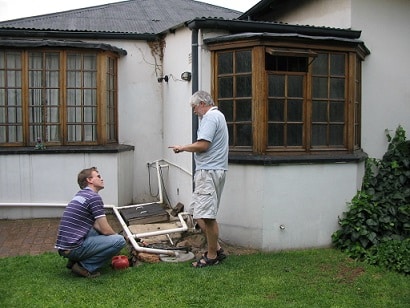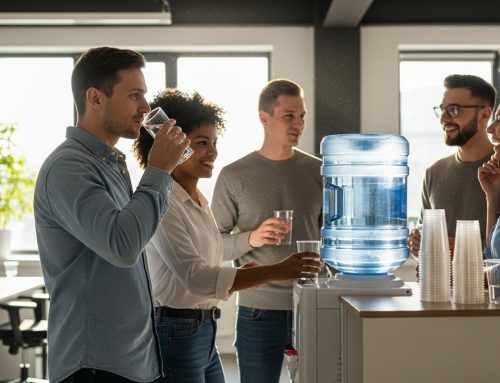 We are in trouble! Due to climate change, droughts, and a burgeoning global population, the earth is running out of potable water; drinking water and water for industry, hygiene, and agriculture. This is NOT a good thing; this is a real catastrophe of great magnitude!
We are in trouble! Due to climate change, droughts, and a burgeoning global population, the earth is running out of potable water; drinking water and water for industry, hygiene, and agriculture. This is NOT a good thing; this is a real catastrophe of great magnitude!
Our bodies are 70% water and cannot do without drinking water as a lack of water causes dehydration and dehydration causes our bodies to stop functioning optimally and eventually shut down.
The solutions to this crisis are manifold, and nations across the world are doing research into how best to handle the water-shortage before it becomes irreversible. These solutions include water restrictions, water conservation and reverse osmosis, a method used to turn saltwater into pure water fit for drinking and other uses.
A big part of water conservation is turning grey water into water that can be recycled and used for other purposes.
What is Grey Water?
Grey water is water that has been used for bathing or doing laundry or washing the dishes. This water is usually just left to go down the drain, and amounts to billions of litres of water going to waste every day!
This water can be recycled for use in landscape irrigation, flushing the loo, and on constructed wetlands. Once it is recycled it can take the place of 90% of the ordinary tap water that is used to irrigate your garden!
Some grey water can be used as is to water plants, as the plant feed on the food scraps that are in the water, but if there are chemicals such as dishwashing liquid or salt in the water, this can have a toxic effect on your plant life.
Recycling Grey Water
Although there are many huge water plants that recycle grey water for everyday use, including drinking water, you can reclaim your household’s grey water quite effectively yourself:
Irrigation: Use your grey water to water your lawns and plants, but do not use it to water plants that bear fruit or vegetables, as they might absorb the chemicals in the water such as bleach, faecal matter, laundry detergents etc. Never water root vegetables with grey water.
Collecting your grey water is quite easily done and you will see a marked difference in your water bill is you do the following:
- Use your old pet water to water your plants when you refresh it instead of throwing it down the drain
- Old water from the fish tank contains nitrogen-based nutrients from fish waste, which is very good food for your plants
- Water from a freestanding air conditioning unit can be used for the garden too. You can easily get a condensate collection kit to gather your air conditioner’s condensation and send it directly to an irrigation system
- Place a bucket under a window-mounted air conditioning system to catch the water that drips from it
- Bath water is about the best kind of grey water, but most people find collecting the water in a bucket or six to throw on the garden a tedious and time-consuming task. Fortunately an enterprising British company has come up with an invention call the Ban Beater, which is a system that sucks up the bathwater into a cistern that can either be located outside or can be carried outside to water the garden.
- Washing machines are also a great place to collect grey water: Instead of letting the water drain out into the sewer system, place the outlet pipe directly into your garden or into a receptacle big enough to contain a few loads of waste water that you can then use to water the garden.
- Invest in a grey water collection system that separates grey water from black water sources. and sends the grey water to a central filter and pump and then to an irrigation system
There are many other innovative ways that you can reclaim and recycle your grey water; just look around your home and grounds.
So, to answer the question, Can Grey Water Solve the Global Water Crisis? the answer is that it can help, A LOT!
Source:
Get water cooler hire or water cooler purchase from Living-Water who is a water delivery company in London.





